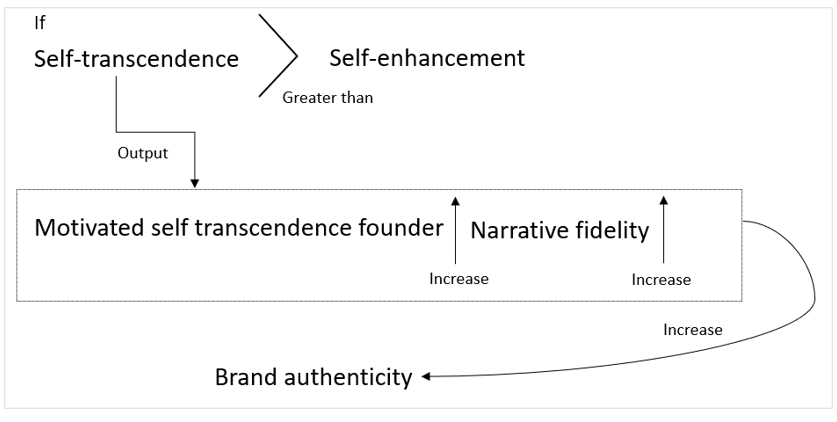The article summarizes five research papers focused on brand narratives, emphasizing the importance of storytelling in brand communication.
The power of storytelling has been recognized since the dawn of human civilization. From ancient myths and legends to modern novels and films, stories have the ability to captivate, inspire, and transform us. In recent years, brands have also recognized the significance of stories and have incorporated them into their marketing campaigns.
The role of stories in brand communication cannot be neglected
From the moment of birth, humans are exposed to stories and are touched by the brands as they enter this world. A brand must communicate authenticity through its campaign as it ranks above innovation and product uniqueness. A good narrative is strong enough to change a consumer’s perception and transport their audience into the storyteller’s world.
Many contemporary brands these days are experts in using biographies that hold underdogs’ narratives reflecting their journey, which includes a humble beginning, hopes and dream and their struggles against adversaries. A brand tries for narrative transportation, which transpires when the consumer sets foot in the world summoned by the narrative as they experience empathy for the character and imagine the plot.
Founder’s values impact consumer perception of narrative authenticity.
The founders’ values are associated with the brand’s values and are perceived to be authentic. People tend to see themselves as the biggest underdogs, comparing themselves with others regardless of their social status and demographics. Consumers highly identify with underdogs brand and tend to advocate for them, especially in non-relational transgression, as they show greater forgiveness intention for underdog brands.
However, not all underdog transgressions are acceptable, especially in delicate categories such as health services and makeup products related to skin. Sometimes, wrong deeds might spark a “love-becomes-hate effect.”
Motivated self-transcendence founders ignite higher fidelity, which increases brand authenticity. Self-transcendence founders are more concerned with the well-being of others, whereas self-enhancement founders pursue personal status and success. If the self-transcendence value is greater than self-enhancement, it increases narrative fidelity, which increases brand authenticity, as shown below in fig:1.0.

Studies show brand narratives are important for the underdog effect.
For instance, Paharia et al. (2011) introduce the concept of brand biography, which has been used in other articles by researchers and shows how individualist culture has a more significant effect on the underdog’s brand. Kim et al. (2019) enhance the same finding with the likeliness of consumers to forgive underdog brands when facing non-relational transgressions as they have stronger bonds with the brand and can identify themselves with them. Krakow et al. (2018) build upon narratives and stories and how they can serve as powerful tools of persuasion.
The findings of these studies significantly impact brand management as they highlight the importance of brand narrative. Brands need to make campaigns with fewer counterarguments that inspire authenticity resulting in persuasive outcomes. It is crucial to test narratives market by market to culturally different consumers. The papers discuss elements that will help brands develop, maintain, and preserve their identity, forming a meaningful connection with their target consumers.
Conclusion
Storytelling has a powerful effect on human behaviour, and brands can use this power to build a relationship with their consumers. Brands need to communicate authenticity through their campaigns, and a good narrative is strong enough to change a consumer’s perception and transport their audience into the storyteller’s world. Brands must understand the significance of narratives and use them in their campaigns to connect with their consumers, build trust, and maintain authenticity. If you’re a small business or a startup, b pandey can assist you in conveying your brand narrative with compelling storytelling.
SEMRUSH gives The Ultimate Guide to Brand Storytelling in 2023
‘People think in stories, not statistics, and marketers need to be master storytellers.’
~Arianna Huffington, founder of the Huffington Post.
References
- Hamby, Anne, David Brinberg, and Kim Daniloski (2019), “It’s About Our Values: How Founder’s Stories Influence Brand Authenticity,” Psychology & Marketing, 36, 1014-1026.
- Kim, Yaeri, Kiwan Park, and Seojin Stacey Lee (2019), “The Underdog Trap: The Moderating Role of Transgression Type in Forgiving Underdog Brands,” Psychology & Marketing, 36, 28-40.
- Krakow, Melinda M., Robert N. Yale, Jakob D. Jensen, Nick Carcioppolo, and Chelsea L. Ratcliff (2018), “Comparing Mediational Pathways for Narrative- and Argument-Based Messages: Believability, Counterarguing, and Emotional Reaction,” Communication Research, 44, 299-321.
- Paharia, Neeru, Anat Keinan, Jill Avery, and Juliet B. Schor (2011), “The Underdog Effect: The Marketing of Disadvantage and Determination through Brand Biography,” Journal of Consumer Research, 37 (February), 775-790.
- Van Laer, Tom, Ko De Ruyter, Luca M. Visconti, and Martin Wetzels (2014), “The Extended Transportation-Imagery Model: A Meta-Analysis of the Antecedents and Consequences of Consumers’ Narrative Transportation,” Journal of Consumer Research, 40 (5), 797-817.




